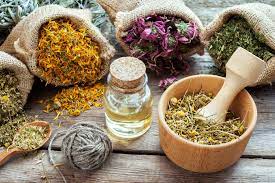1. Licensing & Legal Recognition
- No formal licensing or certification nationwide
In the U.S., herbalists generally aren’t licensed at the state or federal level. There’s no official “Certified Herbalist” credential recognized legally American Herbalist GuildWikipedia. - States with voluntary or linked certifications
Some jurisdictions offer limited pathways:- California allows herbalists to become Registered Herbalists (RH) through the American Herbalists Guild (AHG) following educational and clinical criteria—but it’s not a government license welleumAmerican Herbalist Guild.
- New Mexico and Vermont offer similar AHG-linked recognition under state statutes welleum.
- Naturopathic doctors (NDs), who often use herbal medicine, are licensed in certain states—but only as NDs, not as herbalists WikipediaVault.
2. Professional Credentials & Community Standards
- American Herbalists Guild (AHG)
The AHG is a respected professional organization. It provides:- A peer-reviewed credential (“Registered Herbalist”) for practitioners who meet educational and ethical standards.
- Liability insurance options.
- Legal and practice guidelines, including language considerations to help avoid unauthorized practice of medicine claims Berkeley Herbal CenterAmerican Herbalist Guild+1.
- Speech protections via the First Amendment
Herbalists have the right to share information under free speech—but crossing into diagnosis, treatment, or cure without a license can lead to legal trouble American Herbalist Guild. - “Health Freedom” protections
A growing number of states (e.g., Colorado, California, Minnesota, New Mexico) have enacted laws that protect unlicensed practitioners from being prosecuted as practicing medicine—provided they use required disclosures and respect scope limits American Herbalist Guild.
3. Practice Boundaries & Legal Risks
- Avoid medical claims
Herbalists must not diagnose, treat, cure, or prescribe—those are reserved for licensed medical professionals. Use terms like “client” instead of “patient” and avoid using titles like “Dr.” unless medically qualified American Herbalist Guild+1. - Words that raise red flags
Avoid phrases like:- “cures cancer”
- “treats diabetes”
- “boosts immunity”
- “prescription”
- “FDA-approved”
Any implication of medical claims could trigger regulatory scrutiny American Herbalist Guild+1.
- FDA/FTC restrictions on product marketing
Products sold by herbalists can’t be marketed as medications or disease treatments. Using medical claims can lead to warnings or enforcement actions from the FDA or FTC Wikipedia.
4. Global Context
- Legal recognition in other countries
Some nations formally regulate herbalists. For example, in South Africa, traditional healers (including herbalists) are legally recognized and regulated under the Traditional Health Practitioners Act Wikipedia.
5. Community Voices & Real-World Advice
Practitioners and learners often discuss these dynamics:
“There’s no such thing as a certified herbalist in the US… one can be registered with the American Herbalists Guild.” Reddit
“Some states have health freedom laws… others are stricter, limiting you to educational roles and careful product promotion.” Reddit
Quick Summary Table
| Topic | Key Insight |
|---|---|
| Licensing | No formal licensing exists; AHG offers voluntary certification |
| Scope of Practice | Must avoid diagnosing or treating medical conditions |
| Legal Language | Avoid terms like “cure,” “treat,” “FDA-approved,” etc. |
| Protections | First Amendment + Health Freedom laws in certain states |
| Product Claims | Must not market herbal products as drugs or medical treatments |
Final Thoughts
Herbalists in the U.S. operate in a careful balance—protected by free speech and, in some states, Health Freedom laws—but constrained by strict limitations on medical claims and scope of practice. The AHG offers strong guidance and community support to help practitioners stay professional, ethical, and legally safe.
